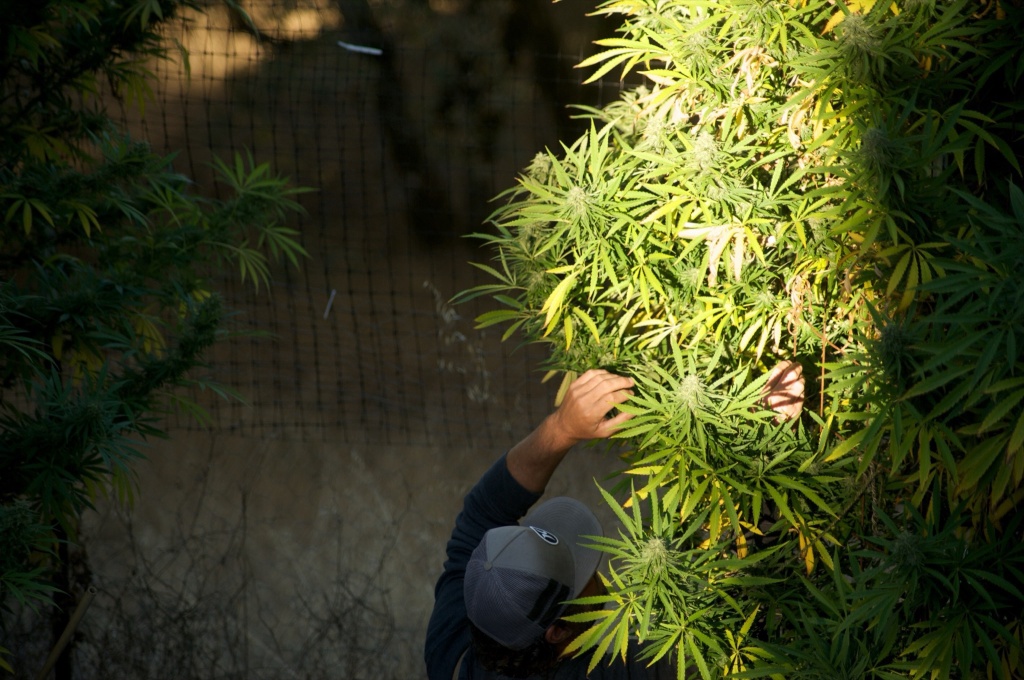California lawmakers are throwing a lifeline to the troubled legal cannabis industry, approving a cannabis tax cut that the industry says will prevent further business failures.
California lawmakers show rare unity in granting cannabis tax cut

Lawmakers gave final approval to the bill last week, sending the measure to the desk of Newsom, who has previously committed to signing it into law. The measure would drop the state excise tax on cannabis from 19 percent to 15 percent on Oct. 1 and maintain that tax rate until June 30, 2028.
Amy O’Gorman Jenkins, the executive director for the California Cannabis Operators Association, said in a statement that the organization is “deeply grateful” to the Legislature for passing the law, which she said would strengthen the legal market.
“This vote saves thousands of jobs and prevents hundreds of small businesses from closing their doors,” O’Gorman Jenkins said in an email.
The measure comes as tax rates for legal cannabis in California seesaw up and down. In July, the state increased the excise rate from 15 percent to 19 percent due to a 2022 law that required the increase. Newsom and lawmakers scrambled to avert that earlier tax hike but failed to get enough votes to approve the measure before the rate hike went into effect.
The legal cannabis industry has long blamed cannabis tax rates, which are considerably higher than tax rates on other goods like alcohol or cigarettes, for fueling the illicit cannabis market by making legal weed stores more expensive than unlicensed sellers.
RELATED: Weed could be the Republican party’s secret weapon
While cannabis companies welcome the tax cut, some nonprofit groups that rely on state revenue from cannabis taxes have attacked the proposal to lower the cannabis tax rate back to the pre-July level. Those groups have said it would result in deep cuts to their programs, which include child care for low-income families. The tax cut will result in $135 million in lost cannabis excise tax revenue in its first year and $180 million in its second year, according to a legislative analysis of the measure.
Newsom had already committed to backfilling at least some of the program cuts caused by a cannabis tax reduction. Diana Crofts-Pelayo, a spokesperson for Gov. Gavin Newsom, said in an email to SFGATE that the governor’s office “will work with the Legislature to ensure there are no cuts to child care due to this policy change.”
Lynn Silver, a senior adviser at the Public Health Institute, said she did not trust that the program’s funding will be sustained after this tax cut.
“Sadly, the administration did not fully backfill this funding after the 2022 cuts and we cannot rely on a promise to backfill a large and permanent reduction in guaranteed cannabis tax funding for kids whose effects will go well beyond this administration’s end,” Silver said in an email to SFGATE.
RELATED: ‘Especially concerning’: FDA issues warning over CBD product
While nonprofit leaders have called for higher cannabis tax rates to fund their programs, cannabis industry advocates say that will only be self-defeating because higher tax rates will reduce legal sales and further shrink the amount of tax revenue for these programs. Cannabis advocates have instead argued that reducing tax rates will actually make more tax revenue by increasing the overall size of the market.
Hirsh Jain, a cannabis consultant based in Los Angeles, said ultimately it was bad policy to tie cannabis tax revenue to these programs, and that lawmakers should instead fund the programs directly.
“If we believe in these programs and believe in legal cannabis, we can’t pit them against each other, we have to support them both,” Jain said.
Lawmakers were nearly unanimous in their support for the tax cut, which Jain said was evidence that the Legislature was “finally grasping that connection” between high taxes and a thriving illicit market.
“For the first time, the Legislature is facing the truth that the high cannabis tax rates are leading to a rampaging illicit market and California is behind other states in facing the illicit market,” Hirsh said.
He said the earlier tax hike was already having an “astonishing” effect, with taxable sales falling 13 percent in August compared to a year earlier.
*This article first appeared on SFGATE and is reposted with permission.